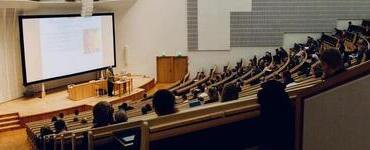This book review summarizes Michael Abraham’s (2020) book, “Engaging Muslim Students in Public Schools: What Educators Need to Understand,” and discusses why teachers will find it useful.
Keywords: Muslim students, American schools, teacher education
Teachers who have Muslim students in their classes want them to be comfortable in school and feel welcomed so that they can do as well as possible in their studies. What they may not understand, however, are the sources of their and their parents’ discomfort with American culture, a predominantly Christian learning environment. Those who want to gain a deep enough understanding to support accomplishment and prevent discomfort should read Michael Abraham’s (2020) book, Engaging Muslim Students in Public Schools: What Educators Need to Understand. The intended audience for this book is teachers in American K-12 public schools, but it will serve well for teachers in other countries where Islam is not the majority’s religion.
The book starts with a compelling rationale by reminding us that teacher education inevitably requires instruction on race, diversity, and multiculturalism, but that religious diversity and Islam, the most important aspects of identity for Muslim students, are rarely included. The rationale is followed by a concise but informative history of Islam in the United States, which goes back to its beginning through the African slave trade. After that, Abraham explains aspects of Muslim beliefs, organized by the five pillars of Islam. He further explains how common education practices can cause discomfort and misunderstanding for Muslim students within that religious framework.
Abraham continues by explaining how learning, lecture based and teacher centered, takes place in traditional Muslim schools. He does not suggest that teachers in American public schools adopt this style of education, but instead suggests how pedagogical practices from Islamic schools can be modified for public school use. For example, Abraham provides teachers with scaffolds, based on argumentation theory as well as his experience teaching, that will make it easier for language learners to extract meaning from texts.
Engaging Muslim Students in Public Schools goes on to include a whole chapter section on what kinds of texts can be offensive for Muslims. Abraham shows how books portraying Islam that are popular among Western readers, such as The Kite Runner by Khaled Hosseini (2003) and The Breadwinner by Deborah Ellis (2014), can be offensive to Muslims’ sensibilities. He concludes with a list of texts that portray a positive and objective image of Muslims, which allow students to see themselves authentically in the curriculum, and can be used to promote literacy.
Abraham’s book provides sensitive, well-researched answers to the many questions that teachers have about working with Muslim students, and brings up issues that many teachers do not even realize are there. He draws on Western educational literature as well as Islamic scholarship and religious texts, and the citations are numerous. Here are some of the questions he addresses:
- What does prayer mean to Muslims, and how can prayer be accommodated legally and with a minimum of disruption to the academic schedule?
- What do Islam, Judaism, and Christianity have in common, and how do they differ?
- When, how, and why do Muslims fast?
- How can our newly acquired distance learning practices help students who are fasting during Ramadan?
- How do Muslims view traditional American holidays?
- Why can teaching about mythological practices or other religions be problematic for Muslim children?
- Why do some Muslim parents object to their children taking part in art or music class?
- Why and when do girls and women wear hijabs?
- What should teachers do when parents ask them to enforce Islamic dress in schools?
- What goes on in Muslim Saturday schools, and how can understanding that experience help public school teachers from Monday through Friday?
This book is not a quick read, and although it includes some easily implementable tips, such as how to include student-led prayer time efficiently, there are other culture clashes that are more difficult to resolve. Some of the practices Abraham asks teachers to implement will require teachers to take substantial time to communicate with parents and students. Teachers also may view some suggestions as inappropriate in modern Western society or in the American school culture. For example, they may not accept the wisdom of separating males from females. They also may not agree with the suggestion that teachers should report lapses in Islamic dress code to parents just because their parents want to know about them, when those lapses comply with school norms. Teachers may also be hesitant about getting inspiration from Islamic pedagogical practice. However, understanding the reasoning behind the issues will make one a more sensitive, more educated teacher.
The reader should also keep in mind that there are a variety of ways that Islam is practiced in the world today, and thus some Muslim parents and students will feel differently about various cultural guidelines. Some will be inclined to follow Islamic practices more closely than others. However, for teachers who care enough to make their classrooms a welcoming environment for all students, this book provides in-depth explanations and suggestions that they can consider. Reading it will make one a more culturally-relevant, thoughtful, and accommodating teacher. For more information about Michael Abraham’s work, visit his website: https://www.abrahameducation.com/.
References
Abraham, M. (2020). Engaging Muslim students in public schools: What educators need to understand. Abraham Education.
Ellis, D. (2014). The breadwinner. Oxford University Press.
Hosseini, K. (2003). The kite runner. Riverhead Books.
Correction made on 7 June, 2021: An earlier version of this article mistakenly included Al Mansour’s (2015) The Green Bicycle as another popular book among Western readers which could be offensive to Muslims’ sensibilities. This reference was replaced with Deborah Ellis’ (2014) The Breadwinner.













